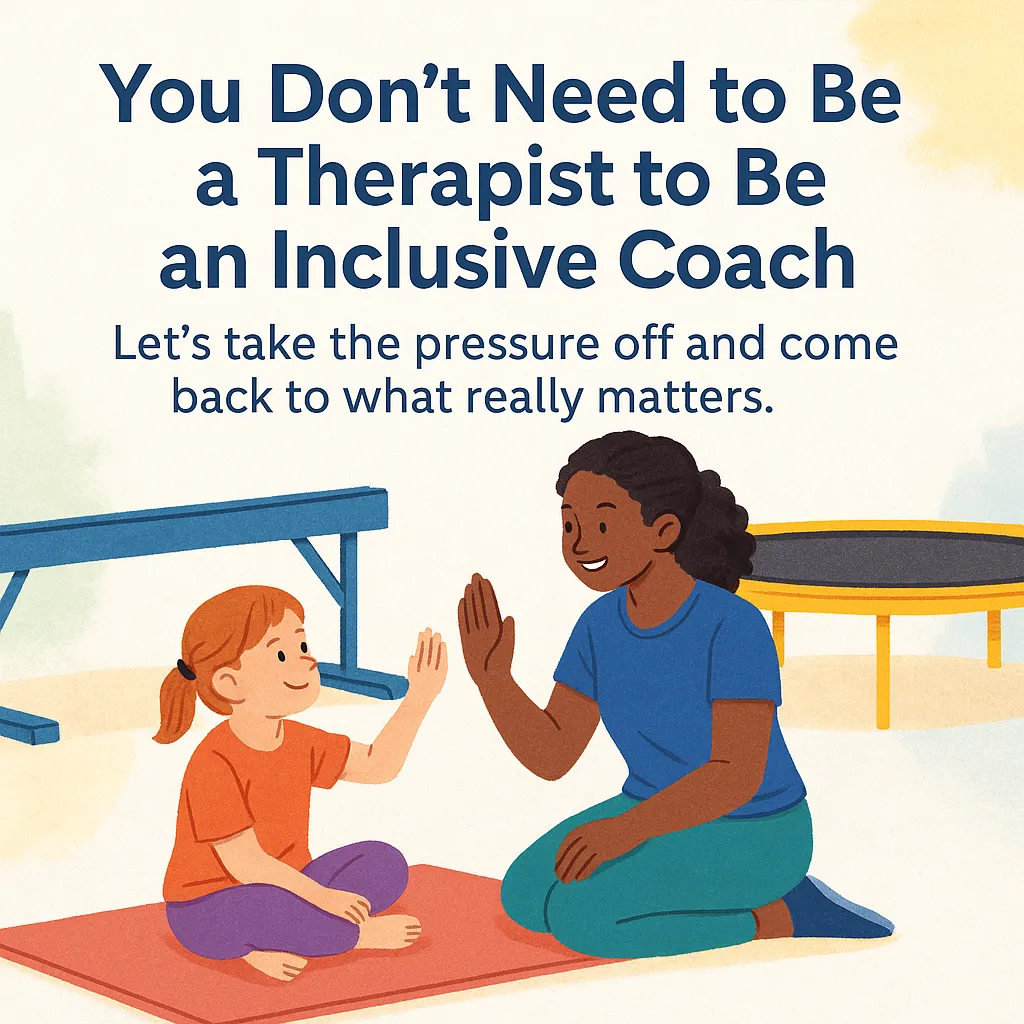
You Don’t Have to Be a Therapist—You Just Have to Be the Coach Who Shows Up; A message for gymnastics coaches
Lately, it’s been a lot.
News articles. Position statements. Heated social media debates.
Government task forces talking about autism.
Medical voices weighing in on whether it’s genetic or environmental.
Language shifting back toward “cure” over “acceptance.”
If it’s overwhelming for me—a pediatric physical therapist who understands the medical, social, and neurodiversity-affirming models—it’s definitely overwhelming for gymnastics coaches.
I’ve spent the last few weeks grappling with all of it.
I’ve felt the tension in my chest. The pull between perspectives.
I’ve felt triggered, defensive, and exhausted.
And then I remembered:
Most people are trying to help.
Even if we disagree on the model or the language, many of us want the same thing—for kids to be accepted, supported, and able to thrive.
A Shift in Perspective
The medical model isn’t wrong.
Neither is the social model.
And the neurodiversity-affirming model? That’s where I live most days.
They all bring something valuable. But as a coach?
You don’t need to carry the weight of all of them.
You don’t need to get caught up in diagnostic criteria or developmental debates.
You don’t need to solve the medical side—parents and professionals are already doing that.
What You Do Need to Know
As a coach, your superpower is in the how—
How you coach.
How you create a welcoming environment.
How you respond to a child in front of you as they are today.
And the good news?
That’s where the social model and neurodiversity-affirming practices shine.
Coaching from the Social Model
The social model reminds us that the barriers often aren’t in the child—they’re in the gym:
Too much noise
Inflexible rules
Overwhelming sensory input
Lack of visual structure
Rigid progressions or expectations
When you remove those barriers, kids can thrive.
You don’t have to “fix” them. You just adapt the space.
Coaching with a Neurodiversity-Affirming Lens
This model says:
Brains and bodies develop differently—and that’s not wrong.
You don’t need to make a child more typical. You need to support who they are.
Follow their lead when possible
Offer choices
Scaffold emotional and sensory regulation
Celebrate effort and self-expression
Coach with curiosity, not control
You’re Not Alone in This
I know this topic can feel heavy.
Like you’ll never know enough. Like you’re afraid to mess up.
Like you’re stuck in a conversation you didn’t ask to be in.
Let me say this clearly:
You are already enough.
You already have the tools—you just might need to use them differently.
You already know how to:
create structure
teach skills
build relationships
spot progress
support confidence
You don’t need a therapy degree. You need your heart, your instincts, and the willingness to keep growing.
Final Thoughts
If I, as a PT who knows both the science and the soul of this work, have to remind myself to step out of the noise and come back to connection—then you absolutely have permission to do the same.
You don’t need to become an expert in autism.
You need to be an expert in creating a gym where every child feels welcome.
That’s what changes lives. That’s what makes you an All-In coach.
Want to learn more about coaching from a neurodiversity-affirming and social model lens?
Check out our free resources or take the All-In(clusive) Coach course today. We’ll help you turn care into action—without the overwhelm.
